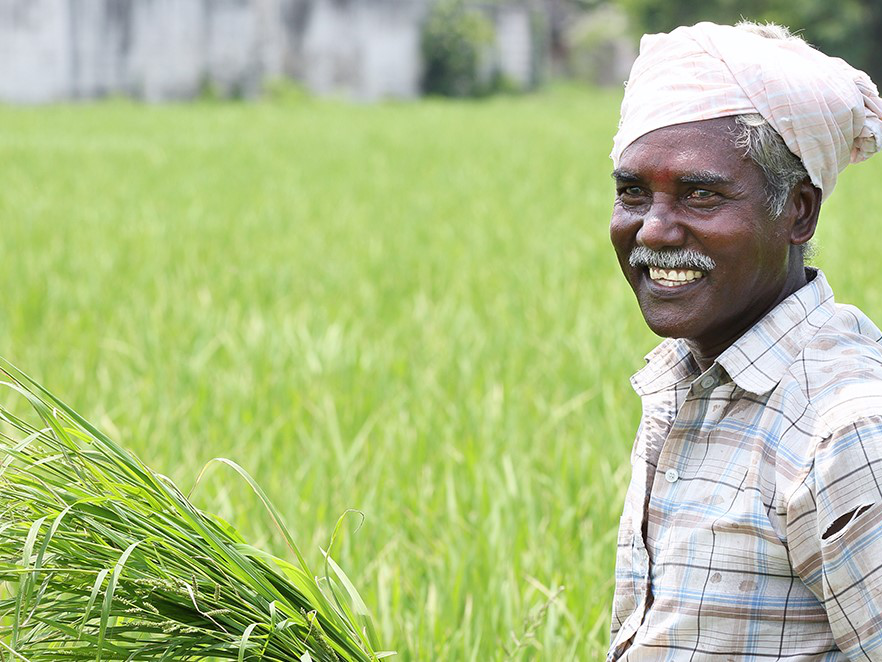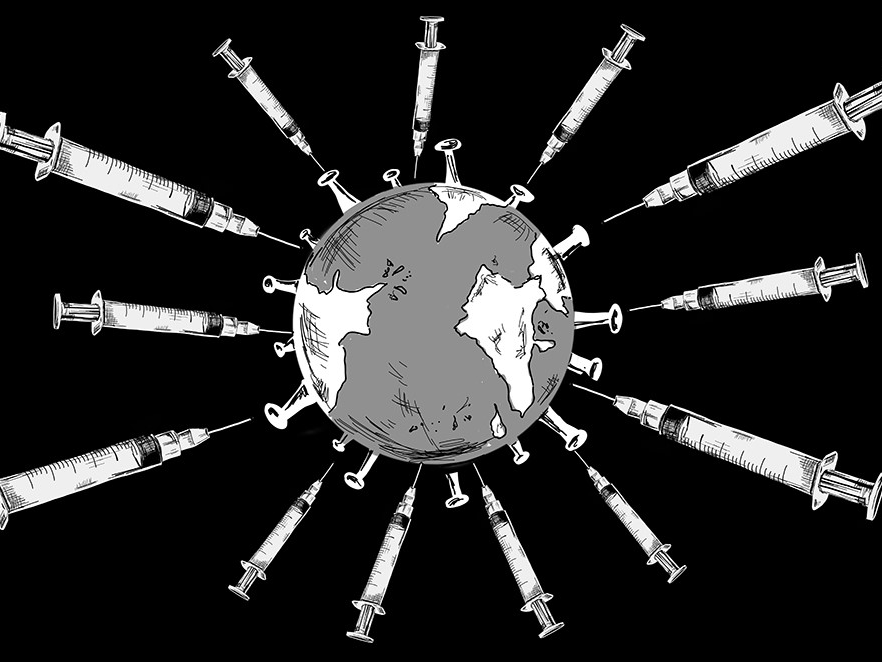It is an understatement to say that agriculture is the life of the Indian economy. It contributes over 16% of India’s Gross Value Added and is the primary source of livelihood for almost 58% of India’s population. Yet there continues to be a clear and urgent need for the agriculture sector in India to be reformed. Big Basket – a leading online grocery retailer and Actis managed investment in India – has been leading this change from the front through its farm-to-fork program.
Big Basket delivers fresh fruits and vegetables, meat and dairy, groceries, personal care and household items via its website and mobile applications. It delivers over 5 million orders per month, offering 50,000+ SKUs. Fresh fruit and vegetables make up about 18-20% of its overall sales.
Leveraging innovation and technology, Big Basket is driving a transformation in the lives of the thousands of farmers, which in turn has helped it build a formidable supply chain for its core products.
Improving agricultural productivity and helping to boost farmer incomes have long been priorities for India’s path to inclusive growth. However, a host of structural challenges in the sector continue to affect the livelihood of the agricultural workforce. Farm sizes remain highly fragmented with average farm size of 1.1 ha, which in turn has led to inadequate income for most farmers. Farmers are often amongst the poorest members of society and worker productivity in the sector is low.
As a result of these factors, retailers who rely on such farmers’ produce often face challenges building a reliable supply chain and ensuring the quantity and quality of produce needed for their customers.
Big Basket is directly addressing some of these challenges by helping farmers access timely information and transparent advice; providing visibility on pricing and sales; ensuring more reliable payments through digital channels and; enabling cost savings and better terms. As a direct result of these efforts, the Company has been able to build a highly robust and reliable supply chain, significantly strengthening its competitive positioning whilst assisting small scale farmers, in a win-win solution.
From the beginning, Big Basket took the approach of investing significant time and resources to cultivate a reliable supply chain and build trusted relationships with its farmer-suppliers, in order to build a differentiated supply chain.
“DIVERSITY AND INCLUSION ARE PART OF OUR BUSINESS GOALS AND STRATEGIC TO US AT BIG BASKET. IT CONSISTS OF THREE PARTS, NAMELY, ENSURING NO GENDER BIAS AND INCREASED FOCUS ON EMPLOYMENT OF WOMEN (AT WHITE AND BLUE COLLAR LEVELS), INCREASED FOCUS ON HIRING DIFFERENTLY-ABLED PEOPLE AND OUR WELL ESTABLISHED FARMER CONNECT PROGRAMME WHICH ENSURES TRANSPARENCY ON PRICING, BETTER RETURNS TO FARMERS AND INCREASED SAVINGS THROUGH TIMELY, DIRECT TRANSFERS TO THEIR BANK ACCOUNTS.”
Hari Menon, Big BasketLeveraging innovation and technology, Big Basket is driving a transformation in the lives of the thousands of farmers
The backbone of Big Basket’s supply chain is the Company’s innovative approach to building rural collection centres at the farm gates (Exhibit 1).
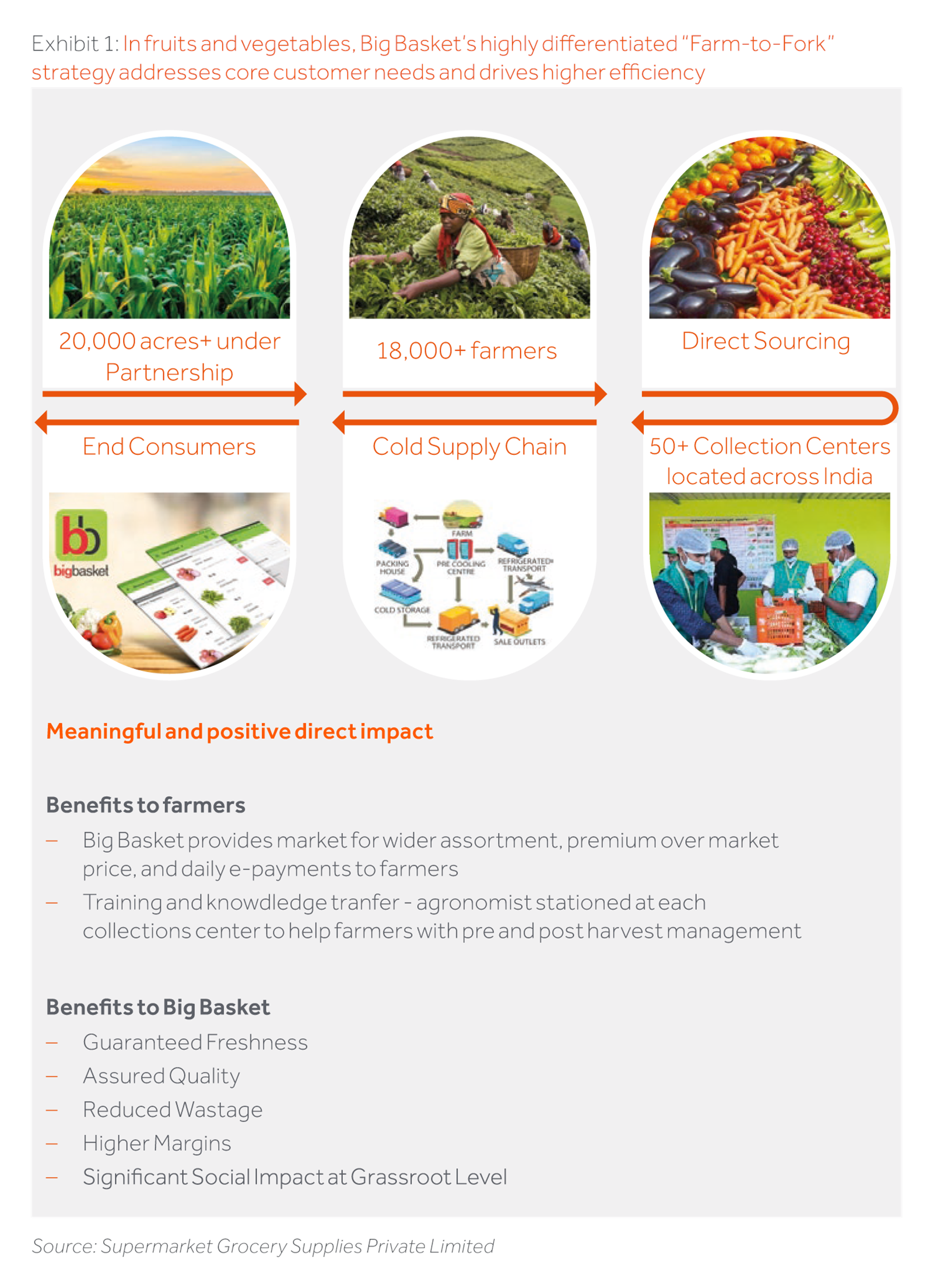
These act as service centres for farmers allowing them to drop off their produce daily, where it gets sorted, graded and shipped to several metro and tier II cities. The end-to-end supply chain allows significant cost savings by eliminating intermediaries while also enabling Big Basket and its farmer suppliers to adjust their produce supply more flexibly in response to consumer demands and preferences. Big Basket can directly monitor and drive the quality of produce it offers under the platform.
Sattva Consulting in partnership with CDC Group and Big Basket conducted a recent study covering 400 farmers across six states (“Insight Study”). As per this study, almost 83% of farmers surveyed reported that Big Basket gives them the best price for their produce. On average it indicated that the prices Big Basket offers to farmers are 10% – 14% higher than local market prices. This is due to Big Basket’s daily dynamic price-setting policy, where regional buying heads find the midpoint between the price offered in local markets and the price that Big Basket can charge to customers in the large cities (Exhibit 2).
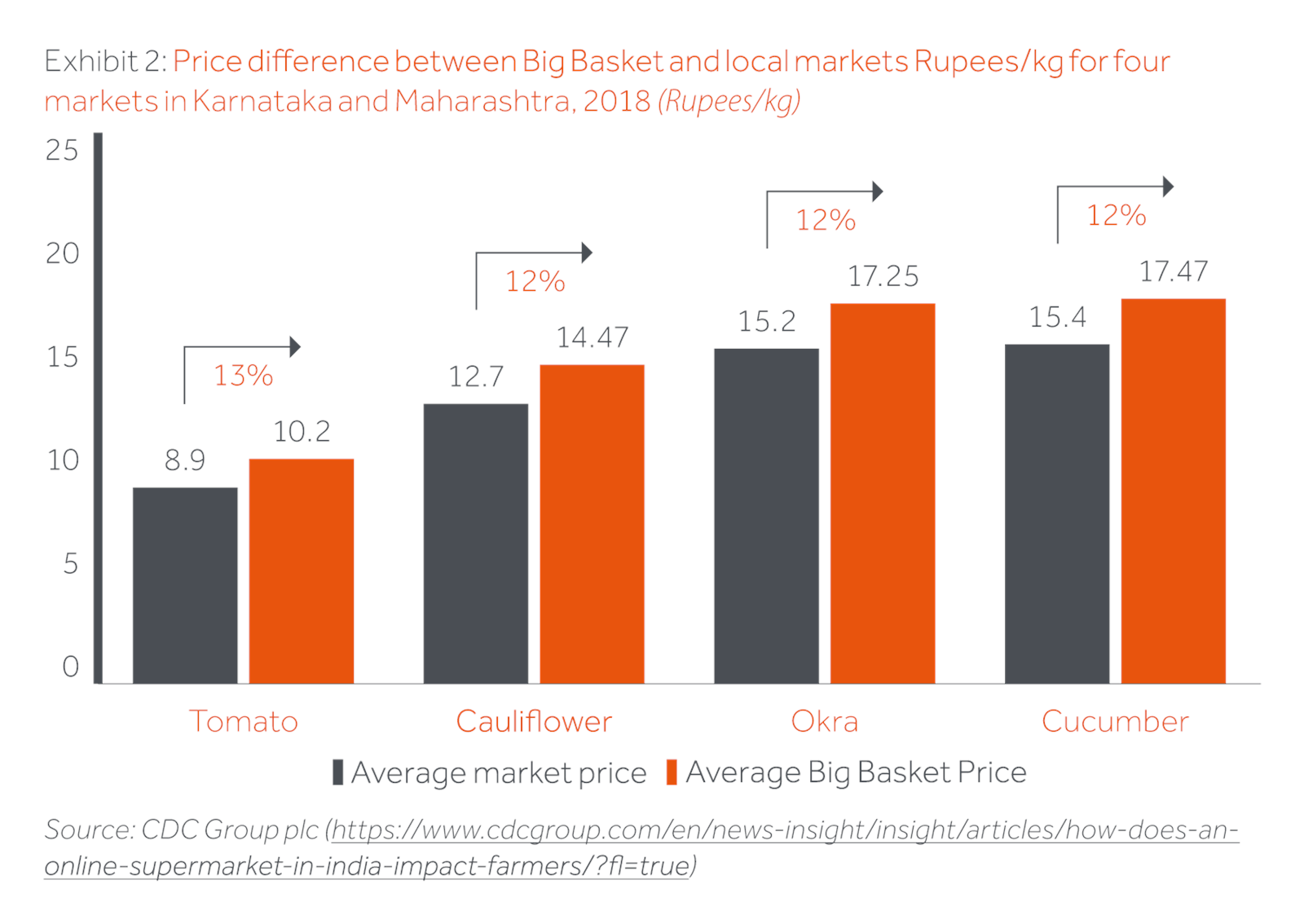
Source: CDC Group plc (https://www.cdcgroup.com/en/news-insight/insight/articles/how-does-an-online-supermarket-in-india-impact-farmers/?fl=true)
The study also indicated that more than half (52%) of Big Basket farmers can sell more than 75% of their produce to Big Basket, leading to large income gains.
Higher prices and cost savings through selling to Big Basket can translate into a significant improvement in farmers’ daily income. Farmers selling to Big Basket save on several costs that would otherwise be incurred from selling in the local market, such as the Government-mandated market commission, labour charges for unloading produce and charges incurred for weighing produce. These savings directly translate into higher profits for Big Basket’s farmers (Exhibit 3).
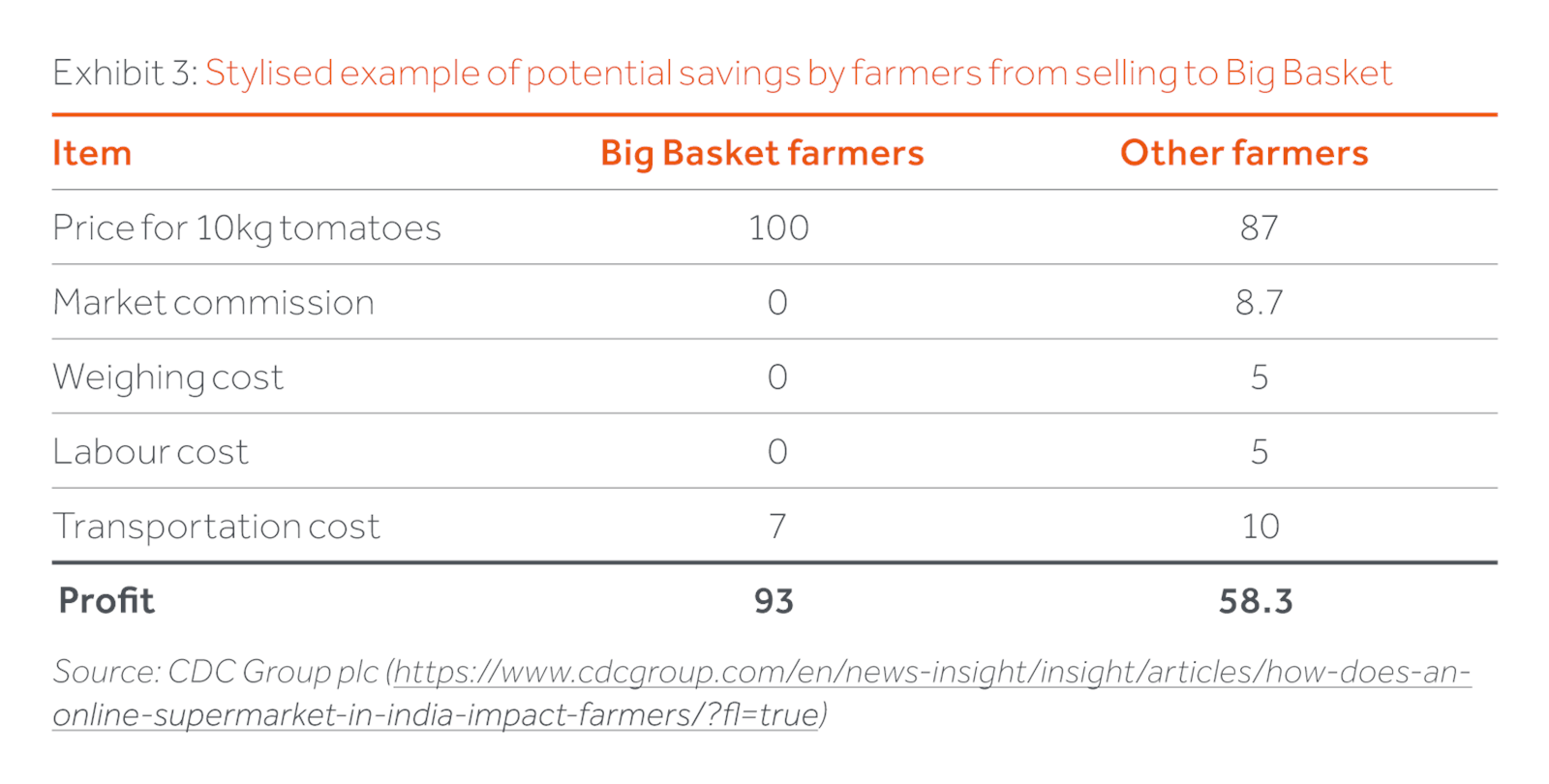
Source: CDC Group plc (https://www.cdcgroup.com/en/news-insight/insight/articles/how-does-an-online-supermarket-in-india-impact-farmers/?fl=true)
One of the other key benefits that farmers have been able to achieve through their association with Big Basket is the convenience of prompt electronic payments. With Big Basket’s electronic payment methods and efficient processing cycle, farmers can manage their operational costs more efficiently. The Insight Study indicated that a vast majority (82 %) of Big Basket farmers receive payment within three days of the sale of their produce, compared with only half of non-Big Basket farmers (Exhibit 4).
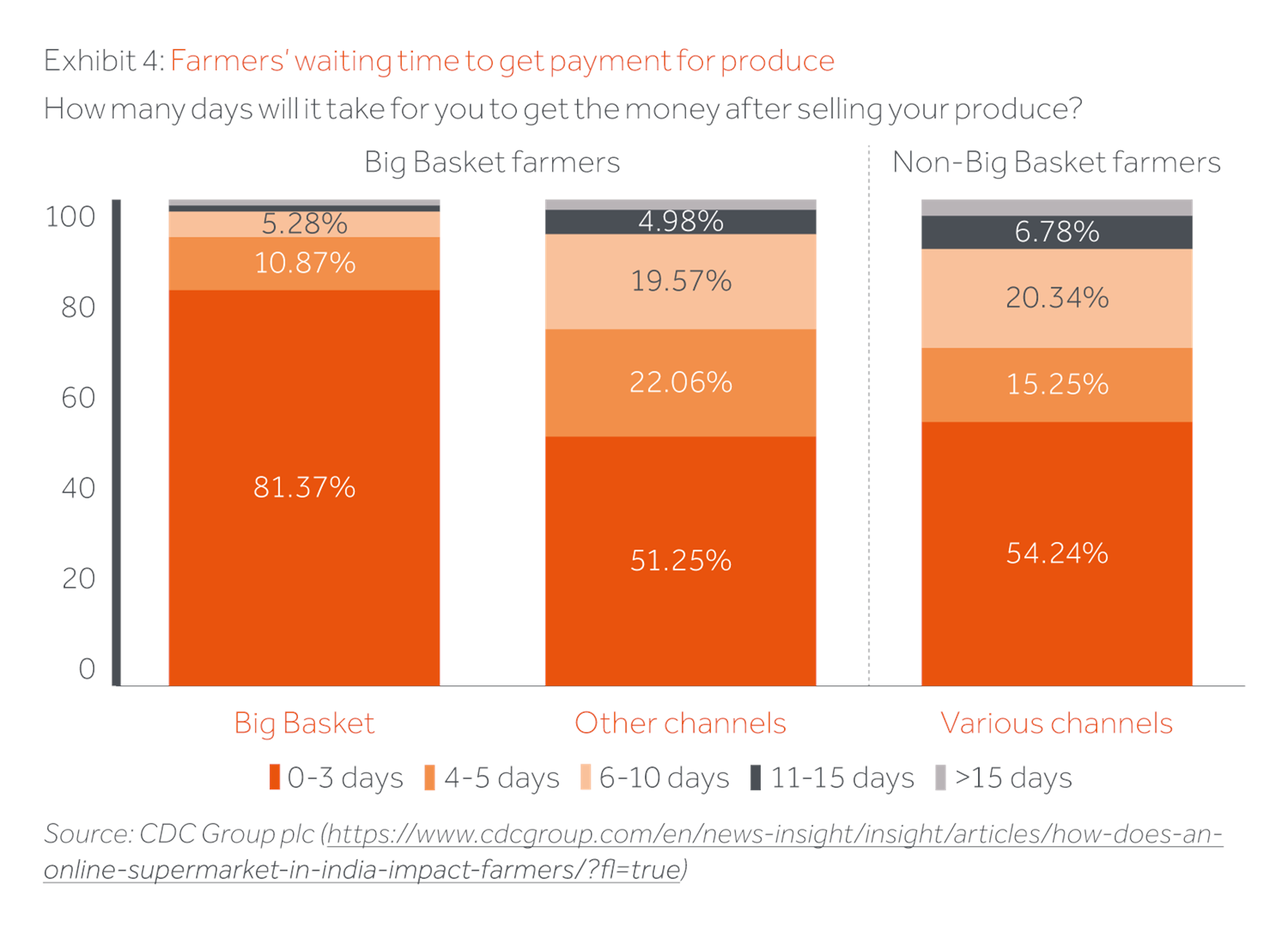
Source: CDC Group plc (https://www.cdcgroup.com/en/news-insight/insight/articles/how-does-an-online-supermarket-in-india-impact-farmers/?fl=true)
Other retail companies also process the payments directly through the bank, but their payment cycle is usually once a week or fortnight. Intermediaries and traders at the local market pay mostly in cash which takes 7–15 days.
To improve productivity and quality, Big Basket has placed a full-time qualified agronomist at each of its collection centres, dedicated to supporting local farmers. These agronomists first onboard each farmer through a personal visit, where their farm is geotagged and the required farmer details and data are entered in the ‘Smartfarm’ platform. They provide ongoing advice on inputs and crop schedules to ensure supply meets demand.
These efforts not only positively impact the farmers but also allow Big Basket to improve its competitive positioning. The Company is able to closely monitor and control the quality of supply which is key for its customers.
All of these measures have enabled Big Basket to build a sourcing model which improves farmers livelihoods and adds real value to their business. The security of knowing what to plant, who to sell to and for how much helps enable farmers to plan their lives, make savings, pay their workers and invest for their futures.
